How the Mercy Ships National Crew Took
on the COVID-19 Pandemic in Senegal
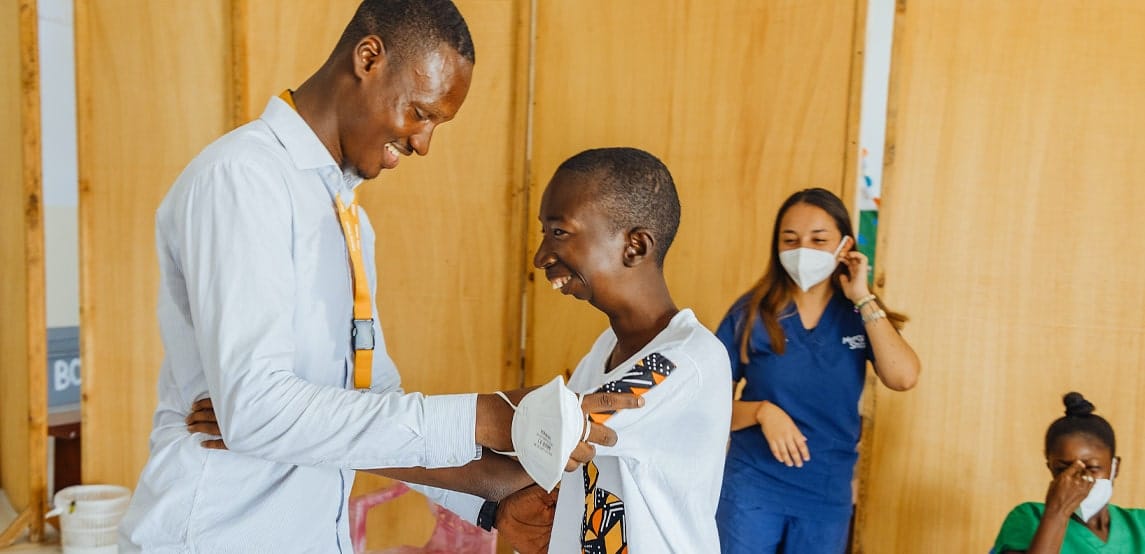
Boubacar Diallo joined the Mercy Ships national crew in 2019, when the Africa Mercy® docked in his home country of Senegal.
He took a job as a translator at the Hospital Outpatient Extension (HOPE) Center, where patients rehabilitate after receiving free surgery. Boubacar’s goal was to improve his English.
But when the COVID-19 pandemic hit and the ship was forced to depart, Boubacar discovered his experience serving the patients had instilled something new in him.
He took a job as a translator at the Hospital Outpatient Extension (HOPE) Center, where patients rehabilitate after receiving free surgery. Boubacar’s goal was to improve his English.
But when the COVID-19 pandemic hit and the ship was forced to depart, Boubacar discovered his experience serving the patients had instilled something new in him.
“We were all supposed to go home, and I said, ‘I think Mercy Ships gave us something so interesting,’” he remembered saying to his colleagues. “Even if we’re not doctors, we can help our community.”
The Pandemic Helpers
Boubacar set about organizing his fellow national crew members, all of whom lived in Senegal.
He said to them, “We must now go to our communities to help them understand COVID and help them protect themselves.”
It was early in the pandemic, and just as in many other countries, there was skepticism in Senegal.
“People weren’t using their masks; they never believed in that,” he said. “Our first task was making them believe that this thing is real.”
Boubacar gathered a group of about 40 people. One woman’s father lent them a car. The volunteers gave of their own time and money, traveling around and providing hand sanitizer and masks, and offering public health instruction.
“Before, I had never known community health,” Boubacar said. “But Mercy Ships gave me training about that.”
The team did not stay in the safest areas of Senegal. In fact, they did the opposite.
“We focused according to the health ministry reports,” Boubacar said. “The area that had the highest cases of COVID, we’d go there.”
The Pandemic Helpers
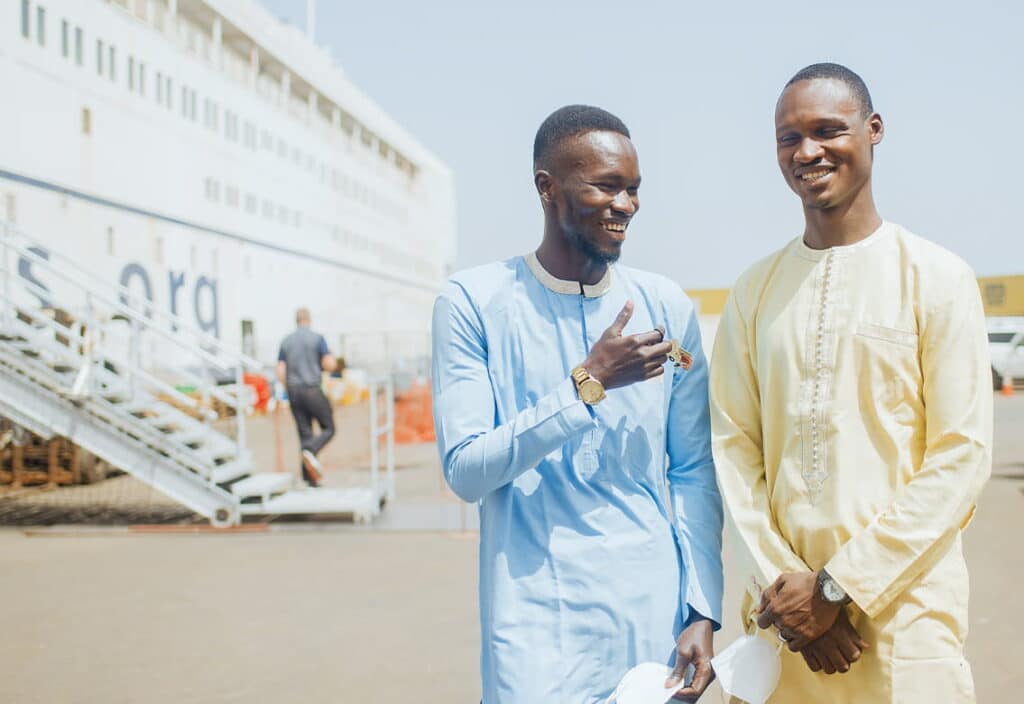
For several months, the committed volunteers placed themselves among the highest concentrations of the virus—before there was a vaccine available. It was scary, but they pushed through the fear.
“Sure, I’m a human being, I’m afraid,” Boubacar said. “But the way to fight against this fear is to protect myself.”
Boubacar knew that he and his team had the knowledge they needed and were taking all the precautions they could to avoid contracting COVID.
“That gave me the strength to go forward,” he said.
As the volunteer effort gained steam, it began to receive attention. Boubacar was interviewed on national TV, and on several YouTube channels. Then, the Ministry of Health reached out.
“They called us and told us, ‘Everything you need, materials, hand sanitizers, masks … we’re going to give you that,’” he said.
Instead of returning to their homes and waiting out the pandemic in safety, the national crew continued to travel from village to village for about six months, providing education, supplies, and hope during those first frightening days of the virus’ spread.
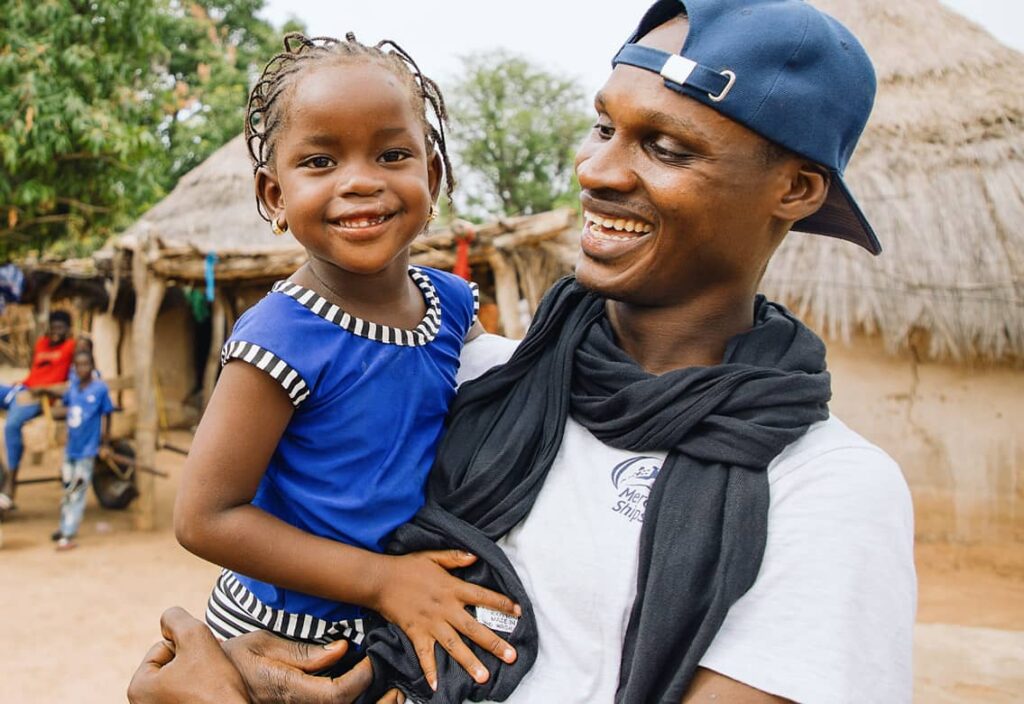
The Most Important Thing
When the Africa Mercy returned to Senegal, Boubacar resumed working as a translator—this time with the communications team. In this role he follows the patients through their entire journey, from surgery to rehab to their return home.
The work has not always been easy.
Other Blog Posts
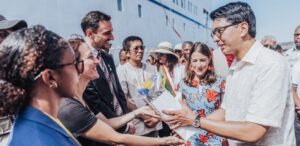
Mercy Ships Welcomes Presidential Visit on board, in Toamasina Harbor
Presidential Visit: Malagasy president His Excellency Andry Nirina Rajoelina visited patients and volunteers on board Mercy Ships’ hospital vessel to see for himself the lives being transformed.
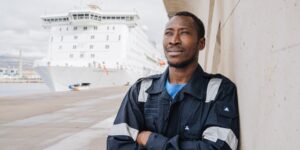
Day of the Seafarer: One Maritime Volunteer’s Story
On this Day of the Seafarer, Mercy Ships wants to honor all the people like Ishaka, volunteer assistant bosun on board the Global Mercy.
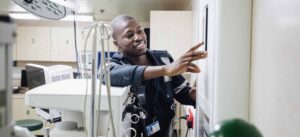
An Electrician’s Journey to Finding Purpose and Professional Growth
When Jean Jacques Diouf came on board for the 1st time, he’d packed his suitcase with enough supplies for one week. Learn more about his professional growth!
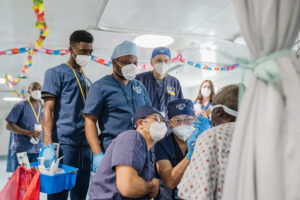
THE MSC FOUNDATION, THE MSC GROUP AND MERCY SHIPS INTERNATIONAL JOIN FORCES TO BUILD A NEW HOSPITAL SHIP
The new purpose-built hospital ship will expand the impact of Mercy Ships’ life-changing surgeries, anaesthetic care and surgical education for future generations of patients and healthcare professionals in sub-Saharan Africa.
Share
“I get tired; I’m so tired when I come back home,” he said. “But in the morning when I wake up … if I think about the wonderful work I’m doing for my community with Mercy Ships, I get the energy to wake up and go to work.”
Before Boubacar began this journey in 2019, he had not spent much time in the rural areas of his own country.
“I now see how poor people are,” he said. “Most people tell us, ‘We have never been to a hospital.’ I say, ‘Why?’ They say, ‘It’s so expensive.’”
Seeing the need in his own backyard has changed the way Boubacar views the world—and his place in it.
“To know that my community is suffering, these things make me another person,” he said. “The kinds of things I see give me the courage to know how my community is, and I want to help and to give them what I can.”
Three years ago, Boubacar may have signed up for the national crew to practice his English. But today, serving others has grown into a calling.
“Giving people this smile, giving people this joy, is the most important thing,” he said.
Direct surgical care and medical training are both crucial components of the Mercy Ships mission. Learn how training people like Boubacar, and other local professionals, can help to strengthen healthcare systems and bring lasting change.
Related Posts
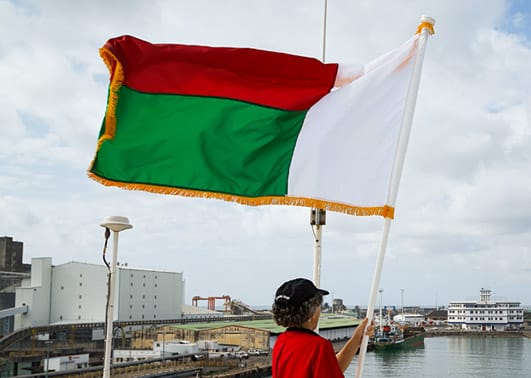
Madagascar Welcomes Mercy Ships for Next Field Service in 2024
Following a series of recent meetings between the Ministry of Health and Mercy Ships, the Africa Mercy has officially been welcomed to return to Madagascar for her next field service. The hospital ship is planned to initially dock in the port of Toamasina in February 2024.
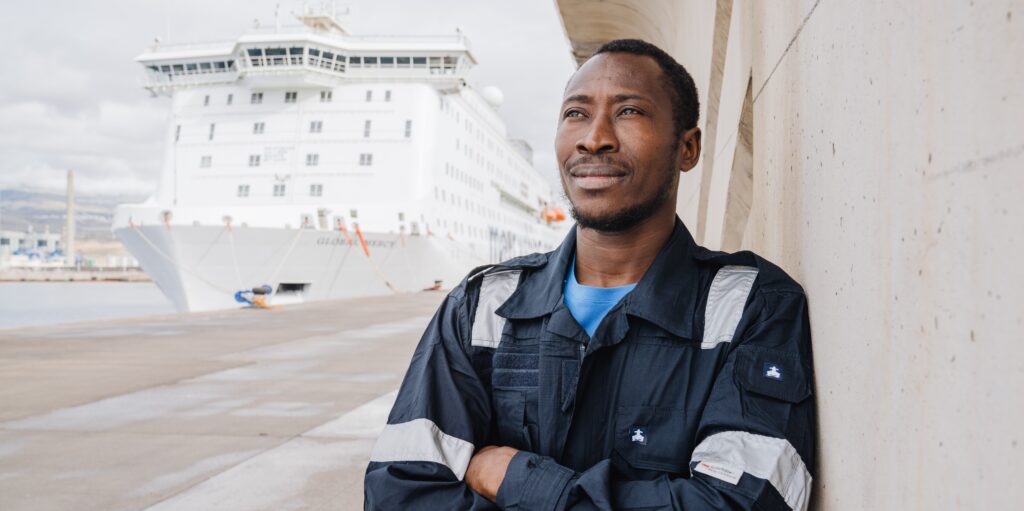
Day of the Seafarer: One Maritime Volunteer’s Story
On this Day of the Seafarer, Mercy Ships wants to honor all the people like Ishaka, volunteer assistant bosun on board the Global Mercy.
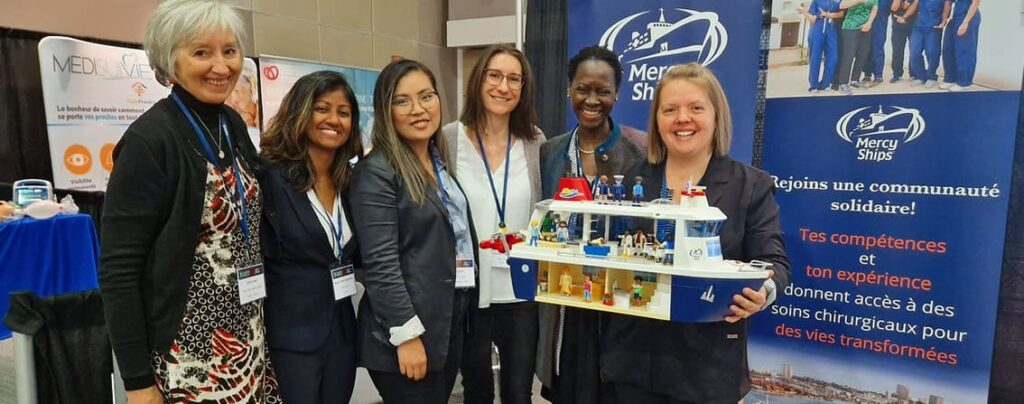
Creating New Connections: Mercy Ships Canada and the Francophone Nursing Community
Find out how Mercy Ships Canada is getting involved with the French speaking nursing community.
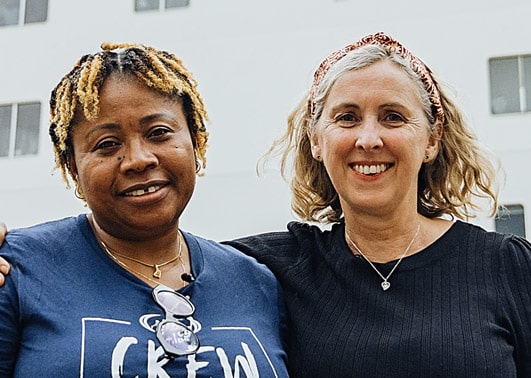
Face-to-Face after Decades: Catherine and Aly Reunite on the Global Mercy
The last time Catherine Conteh saw the deeply familiar smile in front of her in Freetown, it was under dramatically different circumstances. Learn more about Aly’s act of kindness!
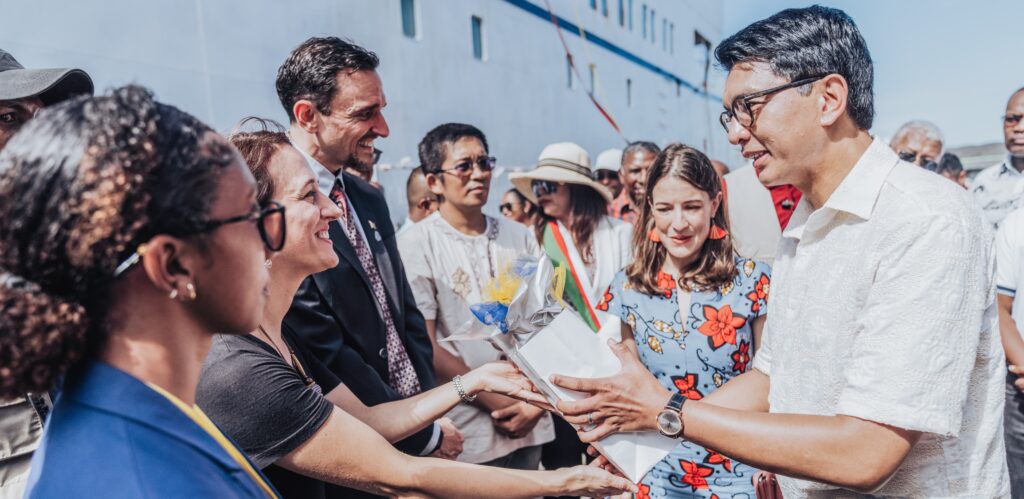
Mercy Ships Welcomes Presidential Visit on board, in Toamasina Harbor
Presidential Visit: Malagasy president His Excellency Andry Nirina Rajoelina visited patients and volunteers on board Mercy Ships’ hospital vessel to see for himself the lives being transformed.
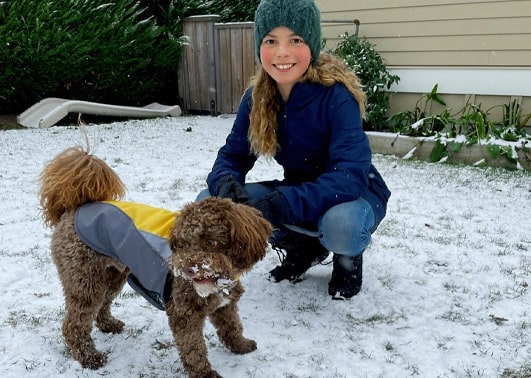
A Young Leader’s Philanthropic Inspiration
Discover how a young girl inspires others by making a generous donation to Mercy Ships Canada
